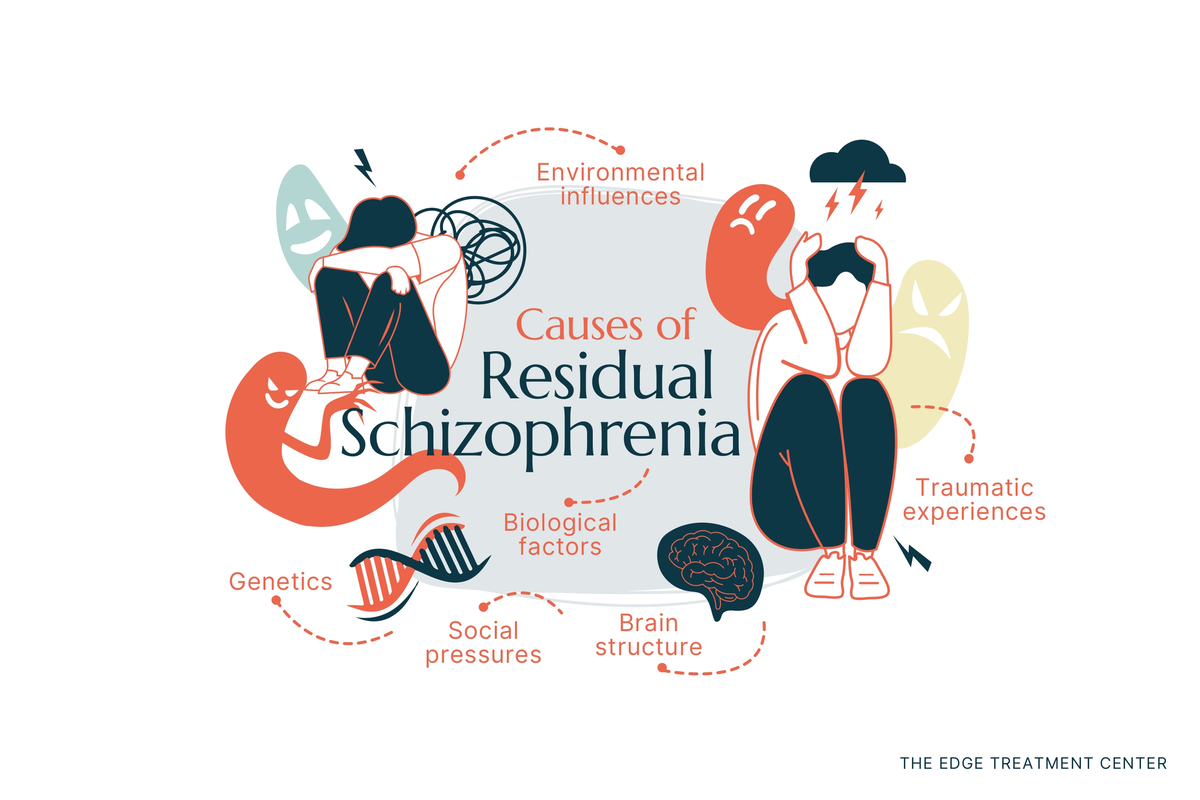Understanding the residual schizophrenia definition is crucial for recognizing the long-term effects of this mental health condition. Residual schizophrenia refers to a phase of schizophrenia where major symptoms such as hallucinations and delusions have diminished, but subtle and chronic symptoms continue to affect an individual’s daily life. This blog will walk you through five essential facts to fully grasp the nature of this condition.

If you need professional support, consulting the best psychiatrist in Delhi can provide valuable insights and personalized strategies for schizophrenia. Consider Visiting:
1. Residual Schizophrenia Definition and Core Characteristics
The residual schizophrenia definition highlights a unique phase of the disorder where prominent psychotic symptoms have largely subsided. However, the person may still show negative symptoms like reduced emotional expression, low motivation, and social withdrawal.
This phase often follows one or more episodes of active schizophrenia and signifies that while the more severe symptoms are under control, the condition has not completely resolved. People with residual schizophrenia may appear stable but still require continued care and support.
2. Signs and Symptoms of Residual Schizophrenia
Understanding the signs is key to recognizing the residual schizophrenia definition in action. Common symptoms include:
Emotional flatness or lack of facial expression
Social withdrawal and reduced interest in activities
Difficulty in thinking clearly or concentrating
Low energy or motivation
Slight disorganized thoughts
These symptoms can vary in intensity and often interfere with social, academic, and occupational functioning.
3. Causes and Risk Factors Explained
Although the exact cause of residual schizophrenia is unknown, research suggests it develops from a mix of genetic, biological, and environmental factors. These include:
Family history of schizophrenia or other psychiatric conditions
Stressful life events or early childhood trauma
Neurobiological changes, such as altered brain chemistry and structure
While these factors don’t guarantee the condition will develop, they are associated with increased risk. It’s important to seek early intervention and consistent care.
For more information, visit the National Institute of Mental Health (NIMH)

4. Diagnosing Residual Schizophrenia: What Professionals Look For
To meet the residual schizophrenia definition, certain criteria must be met over time. The individual should have experienced at least one episode of schizophrenia, followed by a persistent presence of negative symptoms and absence of strong hallucinations or delusions.
Although the DSM-5 no longer classifies schizophrenia by subtype (like residual), mental health professionals still use terms like “residual” to describe a person’s current condition. Diagnosis includes psychological evaluations, interviews, and reviewing the person’s mental health history.
5. Life with Residual Schizophrenia: Support and Recovery
The most important takeaway from the residual schizophrenia definition is that recovery and management are possible. Support options may include:
Psychosocial rehabilitation: Helps build communication, self-care, and job-related skills
Cognitive behavioral therapy (CBT): Useful in managing thinking patterns
Community-based services: Provide emotional, social, and vocational support
For access to care and support services in India, refer to the Ministry of Health and Family Welfare
Role of Medication in Managing Residual Schizophrenia
While the residual schizophrenia definition focuses on the phase where major psychotic symptoms have subsided, ongoing management often includes the careful use of medication. Medication plays a supportive role in maintaining stability and preventing relapse. It helps reduce lingering symptoms like anxiety, mood imbalances, or cognitive difficulties that may still be present in this phase. However, it’s important to remember that medication is just one part of a broader treatment plan. Regular monitoring by a qualified psychiatrist, combined with therapy and social support, ensures a holistic approach that promotes long-term recovery and improved quality of life.

Final Thoughts on Residual Schizophrenia Definition
Understanding the residual schizophrenia definition is essential not just for mental health professionals, but also for families, caregivers, and individuals experiencing the condition. This stage, though less intense than the active phase of schizophrenia, still presents challenges that require compassion, awareness, and long-term support. It marks a shift from acute psychotic symptoms to a more subtle, ongoing struggle with emotional expression, motivation, and cognitive functioning.
Recognizing residual schizophrenia is a step toward reducing stigma and promoting empathy. It emphasizes that recovery isn’t linear and that the absence of dramatic symptoms doesn’t mean a person is fully healed. Individuals may still be grappling with internal difficulties that aren’t immediately visible.

